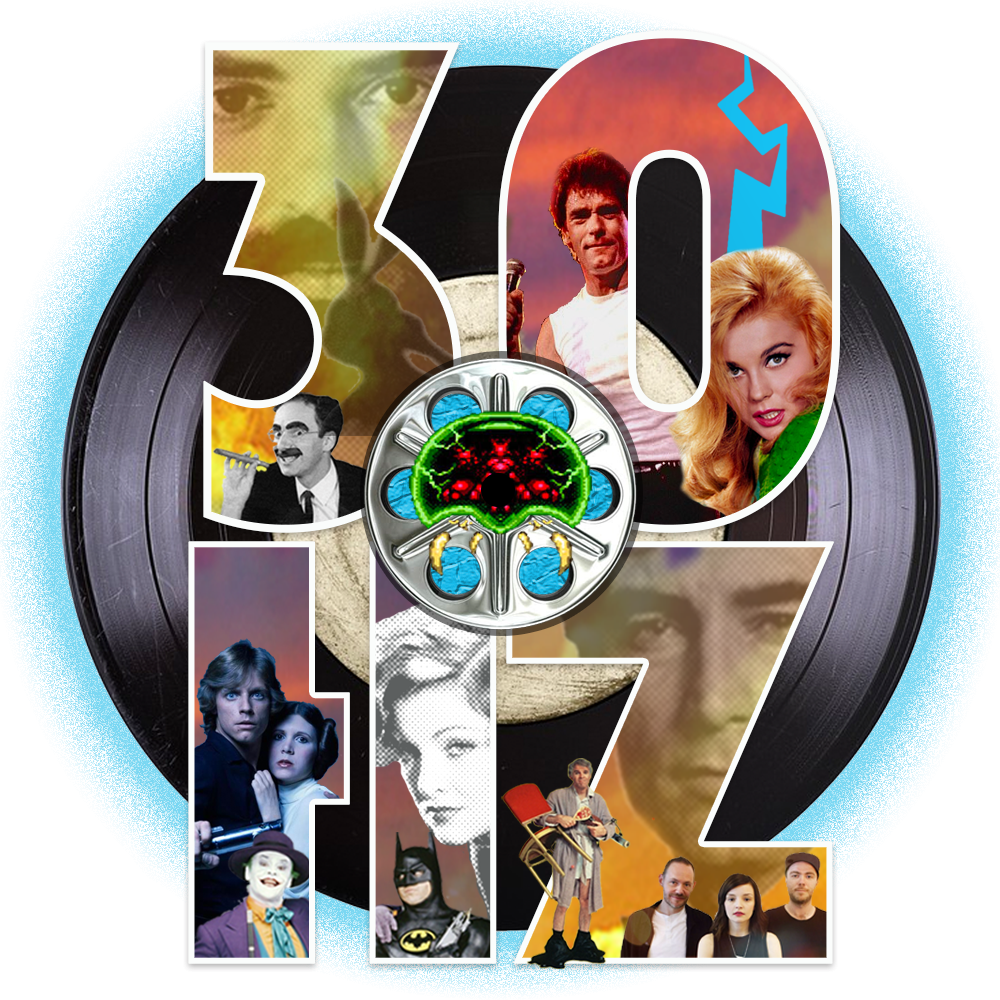I’ve been looking for new ways to keep the focus of this bl-g on music and nostalgia and still keep up with the regular demands of curating such a website. I’ve been consumed with the James Bond Social Media Project and posting lengthier stories hasn’t been in the cards. So today I’m giving birth to a new 30Hz series.
One of the passions from my teenage years that I’ve always carried with me, perhaps asynchronously, is my love of classic old school hip hop. Starting at around age 10 I confounded my parents by listening to Run D.M.C., De La Soul and LL Cool J, to name a few of those early favorites. I tried to pin the whole phenomenon on my dad’s Sugar Hill Gang record. I was a kid that grew up in rural Michigan, outside Kalamazoo… on a farm. Nobody in that two convenience store, two video store, two bar, one grocery store town of 2000 people listened to rap music… if you 12 and weren’t listening to Guns ‘n Roses (or New Kids on the Block in certain circles), you weren’t listening to music.
When I moved to Detroit in 1990, suddenly I had radio stations that only played hip hop… I could walk into a record store and find rap and hip hop music on just about every end cap. Though I may have listened to a little rap music before, now it became a crutch, a new identity. At one point I remember owning every record in the “rap” category in the BMG Music Club catalog. When someone stumbles onto my collection of records or CDs, there’s generally a pause followed by a statement that’s really a question cloaked in insecurity. How does one respond to such a discovery?
“You listen to a lot of rap music.”
For the longest time, I never knew how to respond . Who doesn’t? was never really an acceptable response, even in jest. After a few dozen iterations, I stumbled into a sweet spot, an answer that both humors and illuminates by implying partial truth and stereotype.
“I grew up in Detroit.”
“Ahhhh…. yes.” *nods*
But the truth is that I’ve always listened to all kinds of music… but rap and hip hop from the late 80’s and early 90’s struck a chord at exactly the right time of my youth. I was a fish-out-of-water farm boy suddenly attending a ritzy Grosse Pointe prep school with three-story gleaming white pillars out front. Dress code. Shirts with little horses, ties and khakis. Who was I? How did I fit in here in this world of Polo shirts and mansions and in-ground pools? Though I made friends with, well, we’ll call it “relative” ease, I was more comfortable around other kids who also had a Detroit address. But why was that? Indeed, most of the kids with the Detroit zip codes were black, but just as many were confused Caucasians like myself who were just trying to fit in somewhere, anywhere. I don’t think of the Grosse Pointe/Detroit divide as some sort of modern Mason-Dixon microcosm, but rather as an artificial divide between the kids at my school who felt that there was no other place but “here” and those that didn’t know, exactly where “here” was. I just happened to live on the side of Mack Avenue that made me an outlier, that perhaps accentuated my pre-existing awkwardness. Detroit public schools were a disaster. At the school I would have attended had I not gone to private school, seven kids were shot when a guy just walked in from the street and started shooting in a hallway. I drove past this school every day to get to mine. This also makes me consider the sacrifices my parents had to make in order to send me through the doors surrounded by pillars and marble instead of metal detectors.
The question then was: How the $*%$ did I get here? …wherever “here” really was…
Now, I wonder who I would have been without those three surreal years between rural Southwestern Michigan and Pittsburgh. If I had to pinpoint one part of my life that left the strongest imprint, it’s Detroit. Without question. But do I understand why that city still resonates so strongly in my personal identity?
So, in honor of those confused, formative middle school years, I bring you Old School Fridays, at the frequency of 30Hz. And for my first entry, I bring you a song that dominated the radio in 1990, my first year in Detroit. When I hear this song I immediately recall my art class where we could always listen to whatever channel we wanted while we worked. When Bell Biv Devoe’s “Poison” came on, someone always rushed over and turned up the volume… and many of us would sing along… until our teacher wandered over, ever so casually, and turned the volume right back down from whence it came. BBD’s “New Jack Swing” sound wasn’t exactly rap — but it was the best gateway drug imaginable.



